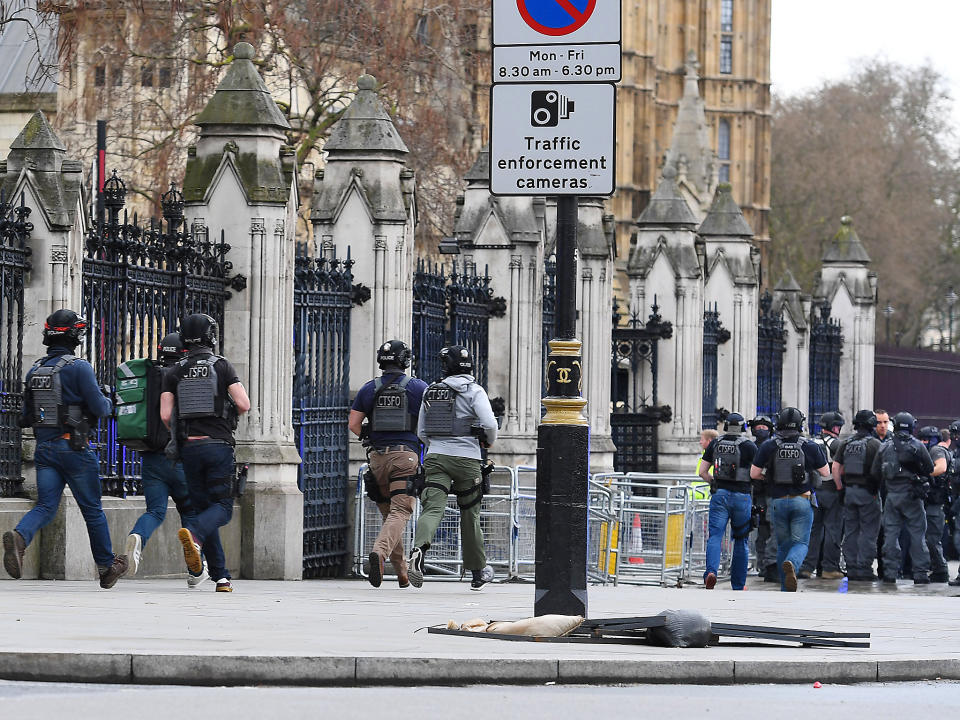Parliament's 'flimsy' barriers which Khalid Masood broke through were discussed by MPs last month

MPs discussed only last month the “flimsy” crowd-control barriers that manage access to Parliament’s New Palace Yard, into which Westminster attacker Khalid Masood broke in and killed a police officer.
In February, members of the House of Commons Administration Committee warned that the barriers could be easily breached and should be replaced.
It comes amid concern over the Palace of Westminster’s security in the wake of Masood’s rampage, which left four victims dead including PC Keith Palmer.
The yard underneath Big Ben is divided from the street by large wrought-iron gates which are often left open, with access controlled only by the low barriers.
MPs on the committee complained that as the barriers are manually operated by police, they put officers at risk and should be replaced with a stronger, remotely operated gate.
The Tory MP and committee chairman, Sir Paul Beresford, said: “There were concerns about security issues in all sorts of ways. As far as I’m concerned the present gates are flimsy and made of Meccano.
“We wanted something that can be operated more easily by the police that will also stop pedestrians.
“At present, two police officers have to open them out, they aren’t armed. Therefore they are at risk. You can just push past them.”
Concerns have also been raised as to whether parliamentary security is adequately staffed, following a sizeable drop in the number of firearm-trained officers employed by the Metropolitan Police.
It was reported that the officer who shot Masood, ending his rampage, was actually Defence Secretary Michael Fallon’s personal bodyguard, who was only on the scene coincidentally – raising questions as to whether another armed guard would have been there if he were not.
Meanwhile, official Home Office figures show that the number of armed officers employed by the Met dropped by a quarter, from a high of 2,856 in 2010, to 2,139 last year.
Former cabinet minister Theresa Villiers suggested it was time for all police who patrol areas “known to be of interest to terrorists” to be armed.
Ms May said on Thursday that the level of security in Westminster had been “enhanced significantly” over her 20 years in Parliament, and that questions over whether individual officers should be routinely armed is an “operational matter” for the police.
House of Commons Speaker John Bercow told MPs earlier this week: “In due time, the Commission, which I chair, will consider, together with our Lords counterparts, what sort of review of lessons learned would be appropriate.”

 Yahoo News
Yahoo News 